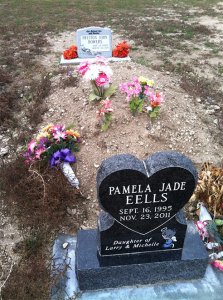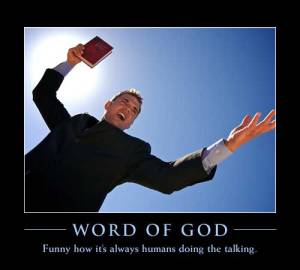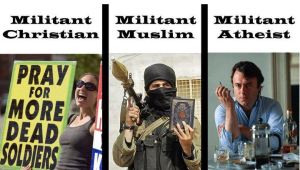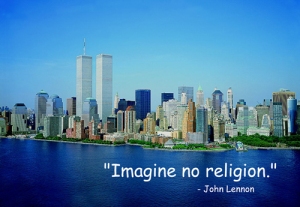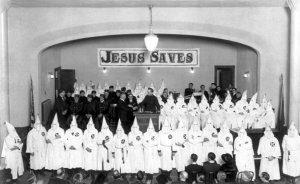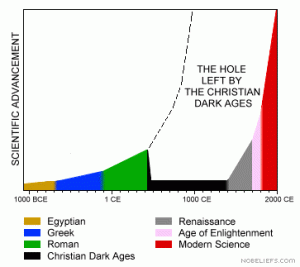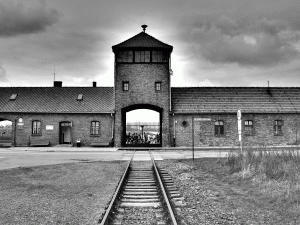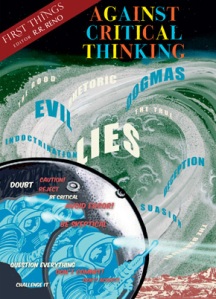 I have just spent the past hour listening to R.R. Reno’s lecture at First Things, which you can view here. The thesis of his lecture, and his book the lecture is based on is that critical thinking as the prime virtue in education produces a vacuous world view as it cannot determine truth and the way to fix that is by pious pedagogy. Reno clarifies that a “Pedagogy of Piety is pious but not necessarily religious.” This leaves the audience to conclude that he means the non-religious definition of piety which I will expound upon below. Since this is a 2500+ word post click here for the "TL;DR" end.
I have just spent the past hour listening to R.R. Reno’s lecture at First Things, which you can view here. The thesis of his lecture, and his book the lecture is based on is that critical thinking as the prime virtue in education produces a vacuous world view as it cannot determine truth and the way to fix that is by pious pedagogy. Reno clarifies that a “Pedagogy of Piety is pious but not necessarily religious.” This leaves the audience to conclude that he means the non-religious definition of piety which I will expound upon below. Since this is a 2500+ word post click here for the "TL;DR" end.
Reno begins with an analogy of a train passenger. The train passenger who is careless and doesn’t look at the train schedule is likely to jump on to the wrong train and miss the right one. The overly careful passenger worries so much about the schedule that he is frozen in fear of being wrong and misses the train. He likens the fearful passenger as the critical thinker.
In the first few minutes of the lecture, Reno is already missing the mark. For one, the analogy is a false one. The fearful passenger is just as lacking in critical thinking as the careless one. Reno states that criticism has become one-sided and in order to avoid being paralyzed with critical thinking, one must form convictions. What he misses is that one purpose of critical thinking is to find the best possible course of action. Critical thinking is about finding answers, not just deconstructing assertions. I am getting ahead of myself.
Reno goes on to create a juxtaposition between the humanities and science. Science is fact based, while the humanities desire a more subtle interpretation of cultural meaning. Then he implies that these are two different, competing, bodies of knowledge. That is where he is off the mark again. His use of humanities refers mostly to literature, meaning that the discussion of literature is a type of knowledge. This is a bone of contention between the hard sciences and the humanities across most campuses. The reason is that knowledge is used in two very different ways. In science knowledge is something that is falsifiable, can be demonstrated, and is independent of the observer. In literature, knowledge can also mean understanding or interpretation of literature. But literature is art, the exploration of it is an exploration of the author’s mind, the author’s culture, and the reader’s mind and culture. In other words, it is not completely falsifiable nor completely independent of the observer and therefore not knowledge in the scientific sense. However, a reader must be able to demonstrate their interpretation using critical thinking.
Reno leaves this line of thinking to explore the relationship between the ivy league and ROTC. He asserts that most ivy league schools rejected ROTC programs because of the institutionalized homosexual discrimination in the military. Here Reno shows two things: he is either ignorant of the effect the Vietnam war had on higher education and ROTC, or he, speaking to a Christian audience, is making a dig on the “liberal” (read secular) culture of the ivy league.
Now that gays are accepted into the military, the ivy league has opened their campuses to ROTC except for Columbia University. He then reads an open letter from Columbia as to why. In summation it is because higher education promotes critical thinking, questioning everything, including authority, where the military requires a blind obedience to authority. Reno quips that the authors of that letter do not know what military training is. Here Reno is right. ROTC is for officer training and critical thinking and evaluation is paramount to a successful mission. Is obedience important in the military? Naturally. A soldier’s job is to inflict the will of the state on whomever the state wishes. Success in this requires obedience… to a point. If an officer orders his platoon to gang rape a prisoner, those soldiers are required to say no. That would be a war crime, and the men and women serving in are military are required to be able to know the difference between a lawful order and an unlawful one. This means that even a private must possess critical thinking.
Reno then attacks the concept of critical distance. A critical distance is removing oneself from the problem to look at it objectively. Reno refers to it as cold and dispassionate. However, Reno is missing the point. The term dispassionate in this sense is the old Hellenistic use of the word. It doesn’t mean without any emotion, but rather without letting emotion purely be the guide. For instance, I was in Joplin on May 11, 2011 when an EF-5 tornado devastated the town. My wife had been in the path of the tornado at her work while I was outside the destruction zone at mine. After I finally reached her, alive with a few minor injuries, we headed off to find our kids. The path of destruction barely missed my in-law’s house where the kids were staying, when we went in they told us that a tree had fallen on the back of the house, but they hid in the bathroom. I quickly counted the kids, saw that the baby was missing and inquired where he was. They said they left him in his crib. I ran in to make sure he was OK, and he was, but I raged at them for leaving him in his crib during the tornado! They didn’t of course, they had him with them in the bathroom. But my passions had taken over. I was not thinking clearly, and thus not acting clearly. Once I calmed down, once I cooled, I was able to see they did the right thing and apologize. It is against this that critical thinking requires a dispassionate distance.
Reno then brings Rene Descartes into the mix. More specifically, Descartes’ theory of doubt: all ideas are suspect until proven otherwise. Or “guilty until proven innocent” as Reno puts it. This is a true cornerstone of critical thinking. Medieval thought, to which Descartes was arguing against, would revise modify a particular stance on something to fit new knowledge. Descartes wanted to tear the whole framework down, and to proceed surely and slowly.
The graph below illustrates Descartes’ call to move slowly and surely:
If you count the hash marks after the year 1000, you’ll see how Descartes was both a product of his time and how he influenced human thought. Around 1400 CE, Europe started to become more secular, that is less pious, in their outlook. Descartes was rejecting the kind of thinking that spanned from 400 CE to 1400 CE: the flat part. Descartes work directly contributed (along with Newton, Leibniz, Galileo, Hume and Kant among others) to the sort of scientific skepticism that by moving “slowly and surely” has advanced science by leaps and bounds.
Reno goes on a bit about Pascal and math, then he comes to his first bit of woo woo. He says that science cannot answer the “important” questions in life. It cannot comfort the dying, cannot know about the after life, who should marry who, etc. Comfort the dying? The after life? Who should marry who? What is moral? Reno is employing two rhetorical devices here. One is the use of weasel words, in this case, listing “important” questions as the non-scientific one.
Can science comfort the dying? Not all the time. But neither can a “there, there”. But science can comfort the dying in one respect: It can find cures for terminal diseases. Which is more than prayer and other forms of authority-based wishful thinking has ever done. What about the afterlife? How would one test for it? The afterlife is more of a philosophical problem. Who should marry who? eHarmony claims to be able to with science. Maybe they can, maybe they cannot. the problem with match making is there are thousands of variables to account for. So I will say science could find a perfect match for someone, but the time and cost would be prohibitive. But that is irrelevant. What matters is the continuance of the species, and we are here because our ancestors liked to make babies; which is precisely why our children are here. Morality? Actually, in The God Delusion by Richard Dawkins contains a science-based moral theory. I would say it is still a philosophical question, but an interesting take on the matter.
Reno is subtle here. Remember, he is a Catholic, and he is silently advocating an ultimate earthly authority in the Pope. Meaning that all the “important” questions can be solved through pious education. By obeying the Pope.
Next, Reno brings in John Henry Newman. Newman asserts that critical thinking is only destructive, and not creative. He says that critical thinking may kill the weeds, but it doesn’t fertilize the flowers. To fertilize the flowers you need to believe first (a direct opposite of what Descartes said). To keep with the analogy, Newman, and Reno, miss something. Believing in everything first, may in fact fertilize the flowers, but it also fertilizes the weeds too. Whereas critical thinking does away with the weeds allowing the flowers to flourish on their own.
The above makes more sense with a little philosophical history. In the 1700s, David Hume put science on its ear by demonstrating that all of science is illogical. Let’s look at this:
If gravity exists then when I drop a ball, it will fall to the ground.
I dropped the ball and it fell
Therefore, gravity exists.
Sounds great tight? Let’s look at is in another way:
If I live in London, then I live in England.
I live in England
Therefore, I live in London.
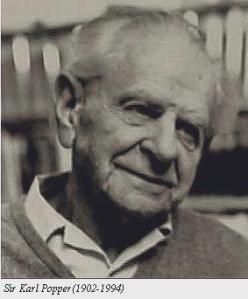 Sounds like Reno has a case? Meet Karl Popper, a 20th century philosopher. Karl Popper said that Hume was correct in his logic, but incorrect as to what scientists do. Popper said that affirming the consequent is not what they do. What they do is experiment against their hypotheses to see if it is wrong. Thus (to re-use the London argument):
Sounds like Reno has a case? Meet Karl Popper, a 20th century philosopher. Karl Popper said that Hume was correct in his logic, but incorrect as to what scientists do. Popper said that affirming the consequent is not what they do. What they do is experiment against their hypotheses to see if it is wrong. Thus (to re-use the London argument):
If I live in London, then I live in England.
I do not live in England
Therefore, I do not live in London.
By using a subtraction force, Popper preserved scientific integrity. The reason is that for any given phenomenon, there are a near infinite number of explanations. No one has time to sift through all of them, and not all of them can be acted upon. Thus we have to take the bad ideas away from the good. This is what science, both hard and social, does.
Reno then goes back to his critique of emotional distance (which he refers to with the weasel word “distance cruelty”). he does this to begin his assault on skepticism, the bane of all flim-flam. He states that a skeptic believes that every argument has an equal and opposite counter argument. This is a flat-out lie. At first, I thought maybe Reno was just uneducated as to what a skeptic is, but in fact he is a highly educated man. I am left with the conclusion that he lied. A skeptic is simply one who approaches all of life through the lens of critical thinking. Does every argument have an equal and opposite counter-argument? Not at all. Separating out the bad ideas from the good is the life’s work of the skeptic.
Reno then goes into what he called the paradox of being yourself. He claims as soon as you makes yourself a project for improvement, then you are by default serving a higher power. This is a flat-out non sequitur. What doesn’t follow is that to be oneself is thus bigger than oneself. To be a flower is to be a garden. That sounds like the random ramblings of Deepak Chopra, than the well-reasoned insights of a learned man. But I digress, and I ad hominem. Sorry, I couldn’t resist.
Reno then returns to Newman’s idea of believing in everything first then to doubt. That it is better to get on the wrong train than no train at all.
It is better to get on the wrong train, go to the wrong destination, than to not get on any train at all.
This is, of course, a ridiculous statement when viewed in the right light. Sometimes it IS best to miss the train!
Reno then includes his second bit of woo woo by assuming that the human soul is about knowing, while critical thinking is about pushing away, subtracting, destroying. He finishes by saying that only a pious mind is a truth filled mind. To shorten this already long post, Reno goes on to a little about how math is to encourage success in finding truth, and that modern education has instilled in students pride in not being deceived. With concluding that belief risks error which is what makes truth possible. Reno does go into why the Virgin Mary is the patron saint of philosophers, but that really isn’t relevant as it just illustrates his failed reasoning.
Reno’s failed reasoning. To understand his argument for piety we must first understand what piety is. It is the act of being religious, but remember that Reno said that it doesn’t have to be a religious thing. Then what does he mean by piety? Piety is defined as “a belief or point of view that is accepted with unthinking conventional reverence.” That means that Reno is advocating knowledge by authority. In other words, believe what your “superiors” tell you. One of the reasons why critical thinking is essential in a democratic society, is that it evens the playing field of knowledge and policy. If the masses can think critically, aristocracy won’t arise, fascism won’t gain hold, theocracy will fail to start. What Reno is arguing for is to turn the fallacy of
argument from authority into a cornerstone for knowledge. This in turn opens the door to theocratic states like the Islamic State and Iran, or to cults of personality like Pol Pot, Stalin and Kim Jong Un.
What is further disturbing is Reno’s use of the word truth. Truth can be considered the complete body of evidence for something, but that would imply critical thinking at work. I think Reno is using the word truth as a weasel word to mean “that which those in authority dictate”. Being Catholic, that authority, at least on the “important” questions, is the Pope.
Reno argues that critical thinking is only a subtractive endeavor that is unable to create. Instead, we should embrace a pious pedagogy which revises the body on knowledge and doesn’t destroy it.
That is is better to believe first and question only if it is not one of the “important” questions of life, like morality and spiritual matters. To those we must be pious: unquestioning belief based on authority.
As you can see, this outlook is self defeating. Which authority do we trust? In a democracy, critical thinking keeps the Hitlers, Pol Pots, Ayatollahs, and Popes at bay. If their rhetoric is challenged, they cannot empassion the masses to do ill.
Critical thinking has done more for the advancement of human knowledge than any appeal to authority has ever done. Critical thinking led to the end of slavery, as well as going to the moon.
Reno calls for a return to the medieval, autocratic thinking, i.e. the dark ages, from which the Enlightenment (and scientific skepticism, AKA critical thinking) illuminated humanity.















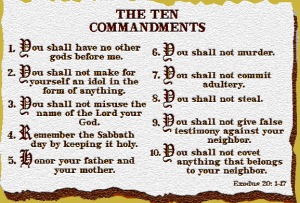
 But instead, Amy says that she didn’t take Melissa to the hospital because it conflicted with her religious beliefs. In Idaho, Amy would then be free to go.
But instead, Amy says that she didn’t take Melissa to the hospital because it conflicted with her religious beliefs. In Idaho, Amy would then be free to go.